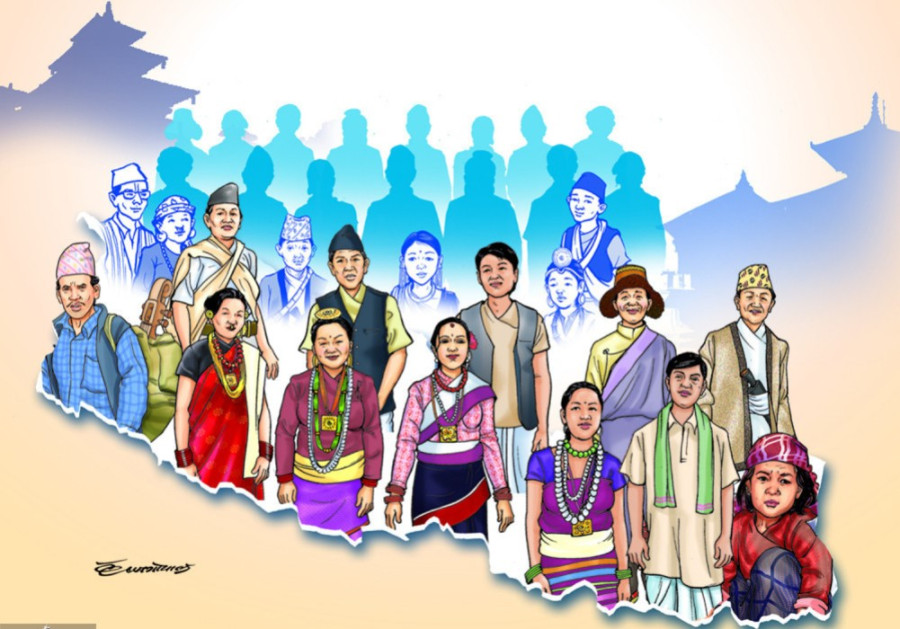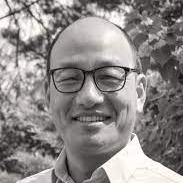Columns
Indigenous thought in a turbulent world
In an age of discord and ecological strain, such a thought offers a rare invitation to pause and reflect.
Dhirendra Nalbo
As an Indigenous scholar, I am observing Indigenous Peoples’ Day (October 12) as more than a pedestrian commemoration. It’s about imagining new possibilities in a world shaken by geopolitical turmoil and the climate crisis. Indigenous knowledge, as I research and teach, is not just about application to address our climate crises. Across countless cosmologies and philosophies, Indigenous thought(s) offers distinct ways of knowing and being—rooted in the localities and ecosystems that show us the path to care for our surroundings, community and future generations.
Historically labelled as “noble savage” or “uncivilised,” Indigenous communities were marginalised to uphold hierarchical systems. Yet, their worldviews—rooted in relationality and interconnectedness—are gaining recognition. As Indigenous communities connect globally and learn from one another, there is a growing realisation of Trans-Indigenous worldviews. Indigenous thought teaches that humans, other species and spirits are part of a sacred web, where existence is relational, not isolated. This perspective calls for a shift from domination to connection, from ownership to relationship, with bonds forming the very fabric of existence.
The stories and ceremonies born from these relationalities are not relics of the past; they are living testaments to a deeper truth that all life is intertwined. In Limbu cosmology (within which I was raised), for example, human well-being is inseparable from that of the mendhamang, the unseen spirit, and the mennimang, the formless spirit. These relationships are not symbolic; they are sacred bonds that remind us that balance and respect sustain all life. Such traditions are far from arbitrary; they are vessels of wisdom, passed down through generations, teaching us how to live with reverence. Indigenous thought invites us to rediscover our place in the web of existence, not as masters, but as participants in an eternal conversation.
In an age of discord and ecological strain, Indigenous thought offers a rare invitation to pause and reflect. It encourages us to reconsider our path, not through more inventions, but by listening to each other and the Earth. At its core, Indigenous wisdom teaches us that we are not dominators but participants in a vast, interconnected web of life. It calls us to embrace balance, harmony and collective responsibility, inviting us to transform ourselves and our governance system.
The pursuit of progress and prosperity has long shaped our ways of being, knowing and finding meaning. These ideals have become sacred convictions, passed down through generations: The future must always outshine the present, just as the present has surpassed the past. Sociologist Andreas Reckwitz calls this the “sacred creed” of modern life, an invisible compass guiding societies worldwide. From households to nation-states, we labour under the belief that living better materially than those before us is a moral imperative. This narrow view of development breaks with how human beings have understood themselves and our place in the world for a millennium.
Faith in perpetual matter betterment has brought us far. We are wealthier and surrounded by once unimaginable technologies. Yet, a different truth emerges in the quiet spaces between our achievements: Divisions deepen, inequality widens and humans become disconnected from major reservoirs of joy and meaning. Progress grows increasingly hollow.
A 2021 report reveals a stark truth: Half of the world’s population owns just 2 percent of the wealth, while the richest 10 percent control 76 percent of total household wealth and 52 percent of global resources. In Nepal, the World Bank reveals a similar divide: The wealthiest 10 percent are three times richer than the poorest 40 percent.
Relentless accumulation of material growth comes at a devastating cost: Environmental destruction, deepening inequality and escalating violence. These forces reveal a pivotal choice: One path, familiar and comfortable, promises material gain but little change; the other, uncertain and requiring courage, holds the possibility of genuine transformation. It is this latter path, rooted in Indigenous ways of being and becoming, that invites us to imagine new possibilities. Possibilities once glimpsed by few, but now, perhaps, recognised by all, in a world defined by unpredictability and the looming shadow of the widespread ecological destruction.
In practical terms, how does Indigenous thought encourage reorienting our ways of being, knowing and acting in response to today’s challenges? I will highlight three key points.
First, Indigenous thought centres on balance: Ecological, spiritual and material. It teaches that our actions must respect nature’s harmony. For example, before cutting a tree, the Limbu people honour tambhungna—the forest spirit—seeking permission and promising to plant a replacement. This ritual reflects a deep respect for nature, urging us to recognise that our survival depends on the well-being of all life. Significantly, practices like these move beyond mere intellectual recognition of interconnectivity and instead experientially reinforce our mutual bonds.
Second, Indigenous thought fosters reconciliation, tolerance and reciprocity. Unlike modern punitive legal systems, Indigenous governance encourages wrongdoers to make amends. In the Limbu system, for example, historically, offenders would be asked to pay for a rooster, alcohol and a small amount of money. This practice at best promoted collective reconciliation and restoration, steering the community towards forgiveness rather than vengeance as a starting point.
Third, in Indigenous thought, true wellbeing is a collective achievement, not an individual pursuit; the self is part of a greater whole. Kinship extends beyond family and clan, encompassing nature and spirits. This view prompts deep questions: What relationships—human, natural, or spiritual—have I unbalanced? What needs healing? What legacy am I shaping for future generations? These reflections lie at the heart of Indigenous wisdom, reminding us that our lives are woven into a web of connection, responsibility and care across time.
Embracing Indigenous thought requires unlearning and freeing oneself from familiar concepts and assumptions. For example, instead of seeing the Limbu people as angry or ignorant, we could ask: Why might they be upset? What meaning does alcohol hold in their culture? What knowledge do they hold rather than lack? How have they adapted their culture through time? What is behind their collectivist culture and devotion to nature? What if we embarked on this open inquiry with Nepal’s dozens of indigenous communities to deepen our learning?
Indigenous thought, long suppressed by those in power, has in fact always been woven into global communities. Graeber and Wengrow, in their sweeping book The Dawn of Everything, highlight how North American Indigenous leaders not only engaged with but actively contested European Enlightenment notions of individual freedom and equality, articulating alternative visions of social life centred on principles of cooperation, equality and mutual aid.
Nepal, too, is rich in this wisdom. What is crucial now is the courage to see Indigenous perspectives not as tools to fix problems, but as radical reorientations of living—open to all, embracing balance, harmony and collective responsibility. Amid ecological, social and spiritual crises, they beckon us to transform ourselves, requiring humility, unlearning, shifting from material progress towards respect and balance and rebuilding a future in which humans are participants in the web of life, not dominators. Uncertain though the road may be, it is the path of healing for humans and other species, including the spirits.




 13.12°C Kathmandu
13.12°C Kathmandu















